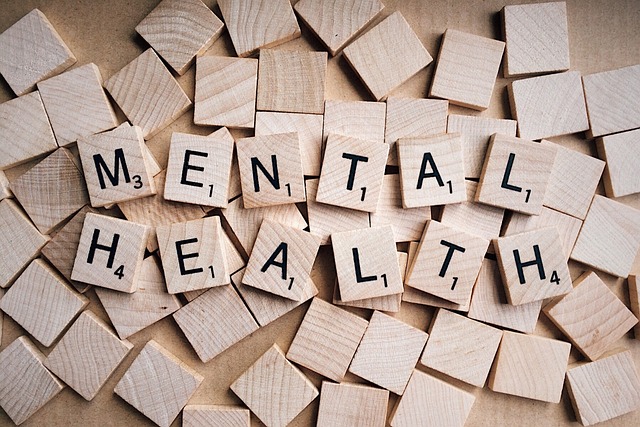How-To Guide: Warding Off Mental Illness in Seniors
Imagine a shield of knowledge and support guiding you towards a brighter mental well-being. As we age, it’s essential to nurture our mental health to ward off illness.
This guide will empower you with essential tools to recognize signs of distress, promote healthy habits, and foster social engagement.
We can build a stronger foundation for your mental well-being by providing access to resources and ongoing support. Together, let’s navigate this journey towards a healthier and happier you.
Recognizing the Signs of Mental Distress
Pay attention to changes in seniors’ behaviour, mood, and cognitive abilities to recognize signs of mental distress. Identifying risk factors is crucial to understanding when intervention may be necessary.
Look out for withdrawal from activities they once enjoyed, sudden changes in appetite or sleep patterns, and increased irritability or sadness. Additionally, please pay attention to any decline in their cognitive abilities, such as memory loss or confusion. These changes may indicate underlying mental health issues that require attention.
If you notice any of these signs, seeking professional help is essential. Mental health professionals have the expertise to assess and provide appropriate support and treatment for seniors experiencing mental distress.
Promoting Healthy Lifestyle Habits
One way to promote healthy lifestyle habits in seniors is by incorporating regular physical activity into their daily routine. Physical activity improves physical health and has numerous mental health benefits. Here are four ways regular physical activity can help prevent isolation and foster a healthy lifestyle in seniors:
- Social Connection: Participating in group exercises or activities allows one to meet new people and form meaningful connections, reducing feelings of loneliness and isolation.
- Cognitive Function: Physical activity has been shown to improve cognitive function, including memory and attention, which can help seniors stay mentally sharp and engaged.
- Mood Enhancement: Exercise releases endorphins, the feel-good hormones, which can improve mood and reduce symptoms of anxiety and depression.
- Overall Well-being: Regular physical activity improves well-being by increasing energy levels, promoting better sleep, and reducing stress.

Encouraging Social Engagement and Support
Encourage seniors to actively engage in social activities and seek support from their community. Community involvement is crucial for seniors to maintain a sense of belonging and connection.
Participating in local events, clubs, or organizations can help seniors build meaningful relationships with others who share similar interests. These interactions provide opportunities for socialization, emotional support, and intellectual stimulation. Attending community gatherings, such as cultural festivals or charity events, can foster purpose and fulfillment.
Additionally, seniors can benefit from joining support groups or senior centers to connect with others facing similar challenges. These resources offer a safe space to share experiences, seek advice, and receive emotional support.
Encouraging social engagement and support is vital in promoting the mental well-being of seniors and enhancing their overall quality of life.
Providing Access to Mental Health Resources
By connecting seniors with the appropriate mental health resources, you can ensure they receive the support they need to maintain their mental well-being. Here are four ways you can provide access to these vital resources:
- Telemedicine services: Introduce seniors to the convenience of virtual mental health consultations. Through video calls, they can connect with licensed therapists from their homes, eliminating the need for travel or waiting rooms.
- Community outreach: Organize events or workshops in senior communities that focus on mental health awareness. This will educate them about the importance of mental well-being and provide an opportunity for them to connect and support one another.
- Collaboration with healthcare providers: Foster relationships with healthcare providers specializing in geriatric mental health. By working together, you can ensure that seniors receive comprehensive care addressing their needs.
- Promote helpline services: Make seniors aware that helpline services are available 24/7. These helplines offer a compassionate ear and professional guidance, providing immediate support during distress.
Supporting Ongoing Mental Well-Being
Continue supporting seniors’ mental well-being by fostering meaningful connections with others and engaging in activities that promote overall mental health.
Maintaining a robust social network is crucial for seniors’ mental well-being. Loneliness and social isolation can contribute to feelings of depression and anxiety. Encourage seniors to participate in group activities, join clubs, or volunteer in their community. These activities provide opportunities for social interaction and promote a sense of purpose and belonging.
Additionally, incorporating mindfulness practices into daily routines can help seniors reduce stress, improve focus, and enhance overall mental well-being. Mindfulness exercises such as deep breathing, meditation, and yoga can be easily integrated into their daily lives.
Lastly, engaging in cognitive stimulation activities such as puzzles, reading, or learning new skills can help keep their minds sharp and prevent mental decline.
Frequently Asked Questions
What Are Some Common Misconceptions About Mental Illness in Seniors?
You might have some misconceptions about mental illness in seniors. It’s important to understand that stigma still exists, and many myths surround this topic. Let’s clear them up and promote understanding.
Are Any Specific Cultural or Ethnic Factors That Can Impact Mental Health in Older Adults?
Cultural influences and ethnic disparities can impact mental health in older adults. Did you know that older adults from minority communities are more likely to experience mental health issues due to barriers like language, stigma, and lack of access to culturally appropriate care?
How Can Family Members and Caregivers Support Seniors in Maintaining Their Mental Well-Being?
Family members and caregivers must prioritize engagement and promote social connections to support seniors in maintaining their mental well-being. This helps them feel valued and connected and boosts their overall sense of belonging.
What Are Some Alternative Therapies or Complementary Approaches That Can Be Beneficial for Seniors With Mental Illness?
Alternative therapies and complementary approaches can be beneficial for seniors with mental illness. They provide additional treatment options and can help improve overall well-being. Consider exploring these options to find what works best for you or your loved one.
Are There Any Specific Challenges or Barriers Seniors May Face When Seeking Mental Health Resources?
You may face challenges and barriers when seeking mental health resources as a senior. Finding specialized care, navigating insurance, or overcoming stigma can be difficult. However, there are resources available to help you overcome these obstacles.











